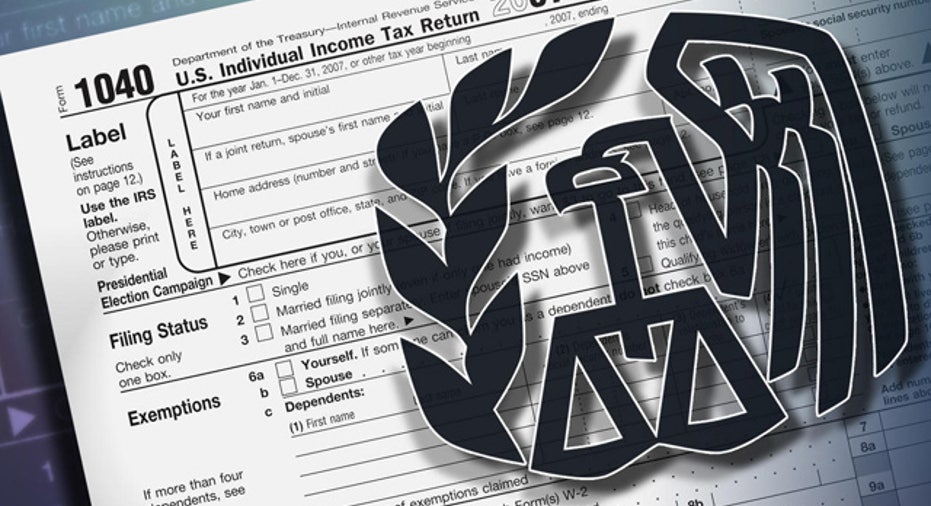When it Comes to Dealing with the IRS, Try, Try Again

When President Barack Obama took office he authorized a budget increase of $600 million for the Internal Revenue Service. The idea was enforcement: generate more revenue from past due tax obligations, audits and non filers. Most of the agencys keyboard artists (the ones who punch in the numbers from mail-in tax returns) were expendable now that electronic filing was on the rise. Retrain them was the mantra; turn them into collection and audit personnel. Bring on the newbies.
Because tax law is so complex and riddled with exceptions and complications and because many of the enforcement personnel are newly-trained individuals, just and proper administration of the tax code can be difficult.
Case in Point: I wrote about an audit case several months ago in my article on alimony; my client made court-ordered payments of alimony and property taxes and insurance for the two homes owned by his former spouse. The IRS allowed the alimony payments as deductions to his income after totaling his cancelled checks and making sure they had in fact cleared the bank. But they did not allow his payments toward the property taxes and insurance as deductions. The code section is very clear on this issue: those payments are allowable. Not only that, but the IRS had allowed the very same deductions in an audit of the prior year.
This past week I finally obtained the desired result for my client after approximately 14 months of work and appealing the case several times. I cited tax code and made my arguments. The IRS came up with rebuttals: The court order is in the Division of Property section of the marital separation agreement, so we cant allow it as alimony. My response was So? Its still alimony. It obviously has nothing to do with division of property. They went back into the tank and months later came back with: The home has to be the former spouses principal residence. My response was Not so! Thats not how the code reads. A few months go by. I get letters every month saying theyre swamped (they are) and Ill hear from them within 30 days. They sent me a letter this weekend, which pretty much stated, OK fine, you win.
To me the conclusion was obvious. But I had to go to various levels before I was finally heard.
As a tax professional, I know my way around the tax code and dealings at various levels within the IRS. However, what about the little guy, who might have just said, Oh well, thats not fair, but I guess its the law, paid the tax bill and went on with his life? Well, here are some tips to help you keep your money in your pocket when you have a problem with the IRS:
Read Publication 1, Taxpayers' Bill of Rights: This will give you a background of your rights and resources to ensure them.
Run your situation by a tax professional for advice and tips: It may be to your advantage to hire a savvy CPA or EA to handle it for you. A tax professional can let you know whether or not you have a valid argument. He can also warn you against any Wesley Snipes types of frivolous stances, which may be heavily penalized if pursued.
Do your homework: Save money in tax pro fees by researching your situation online. The IRS offers a plethora of publications and instructions for tax forms that provide information in plain English. Cornell University Law Schools website is also helpful (search IRS tax code) but be warned, its not necessarily up-to-date.
Documentation: Keep a written log of who you speak with at the IRS including his or her badge number. Note the date and content of the conversation and follow up every conversation with a faxed summary to the agent you dealt with. Make sure you make copies of all correspondences you send to the IRS including copies of documents you provided. Meet all of their deadlines for providing documentation.
Appeal your claim until you get the proper result: If you are refused, present your research and ask where the fallacy lies. Get the IRS to cite the code section upon which it is basing its decision. Dont be afraid to argue your points.
Contact the Taxpayer Advocate: If you have exhausted your resources and have still not found justice go here or call them at 877.777.4778 for help. This is a free service by an independent agency which works within the IRS.
Most IRS personnel are friendly and helpful. Many are new to a very difficult job. Although you may often feel frustrated and angry, remember the Golden Rule: Treat others as you would wish to be treated.
Bonnie Lee is an Enrolled Agent admitted to practice and representing taxpayers in all fifty states at all levels within the Internal Revenue Service. She is the owner of Taxpertise in Sonoma, CA and the author of Entrepreneur Press book, Taxpertise, The Complete Book of Dirty Little Secrets and Hidden Deductions for Small Business that the IRS Doesn't Want You to Know, available at all major booksellers. Follow Bonnie Lee on Twitter at BLTaxpertise and at Facebook.



















